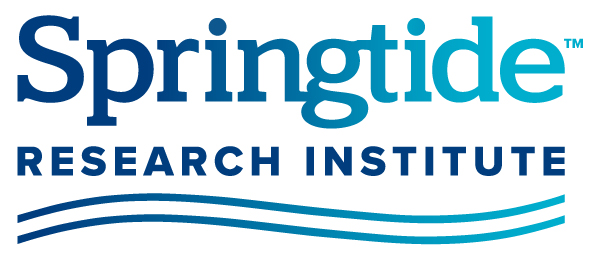Findings suggest ways faith leaders can facilitate belonging, mitigate loneliness in young people
BLOOMINGTON, Minn. — A new survey by Springtide Research Institute found that for many young adults, shelter-in-place and social distancing provokes fear and uncertainty, leading to increased levels of isolation, loneliness, and anxiety. The survey found that the single most important way to mitigate loneliness is for trusted adults to reach out and connect.
Springtide surveyed a nationally representative sample of 508 young adults aged 18-25. One in three (32%) of these respondents live alone. These solo dwellers report some of the most troubling data of this survey. Within this particular subset, six out of ten report feeling very isolated, and nearly half say they feel scared and do not want to be alone.
Yet, even among young adults who are sheltering-in-place with other people, half of the participants say that they feel alone. Many (39%) report their loneliness is because no one has checked in with them. The survey found that when a trusted adult outside their house connected with them, nearly eight out of ten young adults report feeling less lonely.
Of those adults who reached out to young people, the most common connection was family and friends, (89%) followed by teachers/professors, (5%) bosses, (2%) and less than 1% of adults who reached out to young people were clergy or faith leaders.
During social distancing, the survey found that young adults are not experiencing a decrease in their faith, in fact, a little more than one in three (35%) report increased faith while nearly half (47%) report their level of faith staying the same. Seven out of ten respondents who watched an online service say that interacting with people, even virtually, makes them feel more connected. Yet, nearly half of these respondents report feeling isolated because no one has reached out to them individually.
Despite churches, religious or faith communities providing online rituals and virtual spaces during this time of social isolation, the survey found that what mitigates the experience of loneliness for young people is the act of caring adults checking in and connecting with them.
“Reach out to the young people in your community and ask them how they are,” said Dr. Josh Packard, Executive Director of Springtide Research Institute. “That is the singular most important way to reduce feelings of loneliness and isolation during social distancing and beyond. Young people need to be noticed, named, and known to feel that they belong to your community.”
The survey findings follow a 2020 Springtide study report, Belonging: Reconnecting America’s Loneliness Generation, which examined the effects of loneliness on a nationally representative sample of 1000 young people aged 13-25 across the U.S. Belonging found that 40% of young people feel as though they don’t have anyone to talk to, resulting in increased rates of extreme stress.
“A sense of belonging is a human need, just like the need for food and shelter. Feeling that you belong is most important in seeing value in life and in coping with intensely painful emotions,” Karyn Hall, PhD, is quoted stating in the Belonging study.
Data from Belonging indicates that unlike previous generations, affiliation with social groups and institutions, including faith communities and religious groups, does not significantly increase a young person’s positive feelings of belonging. This is due in part to eroding trust in institutions and a perception that certain traditional tools for connecting are ineffective.
Belonging found that meaningful adult relationships are critically important to a young person’s well-being. The higher the number of positive adult relationships which are authentic, vulnerable, curious, warm, and structured, the more a young person will be able to cultivate positive feelings of belonging. The study found that 62% of young people with zero trusted adult relationships feel completely alone. Conversely, for young people with five or more trusted adult relationships, only 9% report feeling alone.
“Every time we asked young people to tell us where they found belonging, they pushed back. Over and over, they would tell us who — who created a sense of belonging for them,” said John Vitek, President and CEO of Springtide Research Institute. “It turns out, the place or setting didn’t matter nearly as much as the relationships these young people had with family, friends, and non-judgmental, caring adults.”
Belonging includes actionable insights for adults who care about mitigating social isolation, loneliness, and stress in young people, including faith leaders, educators, coaches, health providers, and youth workers. These insights include a process for cultivating intentional, non-judgmental relationships with young people resulting in increased experiences of belonging.
“We believe there is an urgency for those working with young people to understand the need to be connected during this time of social distancing,” said Packard. “This is an important moment for spiritual leaders to do what is at the heart of their faith.”
This important study can be found on Springtide Research Institute’s website.
Springtide Research Institute is a sociological research institute listening to the inner and outer lives of young people ages 13 to 25. We seek to help those who care about young people care better, by amplifying young people’s lived experiences through unbiased research and generation of evidence-based actionable insights.
###
The free CSS minimizer will compress the style files for your websites in seconds and it does not require download and installation.
Contact:
Ellen Koneck
[email protected]
(651) 442-1030





